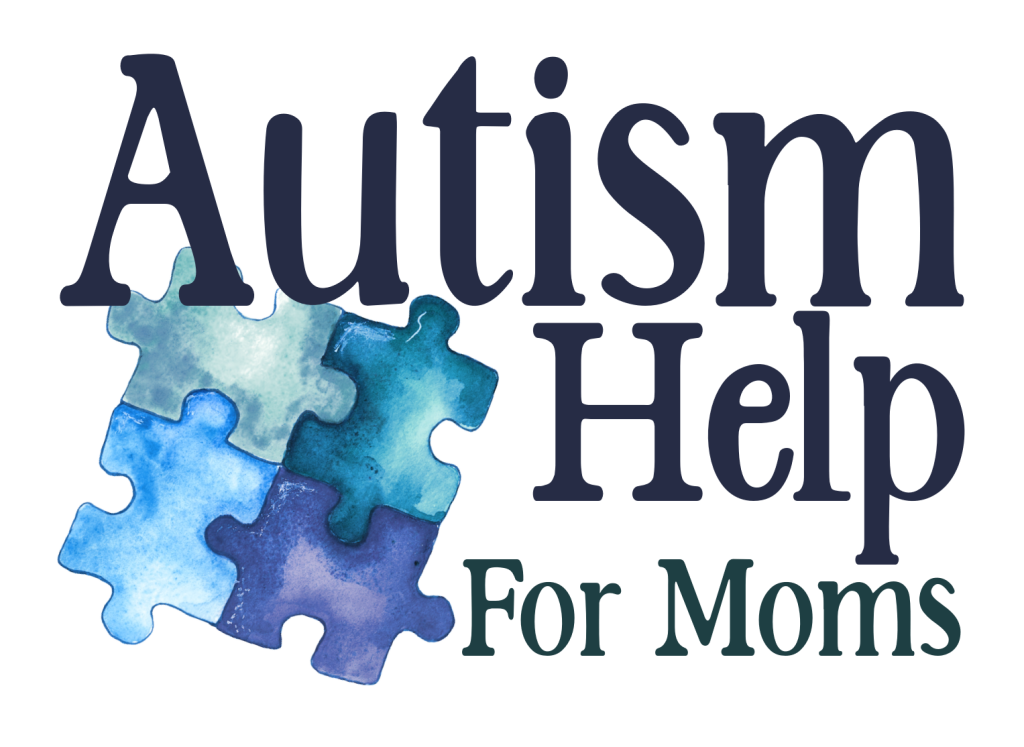Originally shared as a list of 10, I’ve narrowed it down to the 5 questions that truly move the needle. These are the ones I wish I had asked from the very start.
Walking into an IEP meeting feels like stepping into a courtroom — except you don’t get a lawyer, you don’t get training, and the “jury” across from you thinks they know your kid better than you do.
Long table. Laptops clicking. Acronyms flying around. You? Clutching coffee like it’s armor, silently praying you don’t cry in front of them (be prepared, cause you will).
I’ve been that mom.
I’ve been the mom who left the meeting shaking with rage because nobody heard me.
I’ve been the mom sobbing in my car because the school brushed off my daughter’s needs.
And I’ve been the mom who finally slammed my hand down and said: “If you won’t help him, I’ll call a lawyer.”
Ten years. Two autistic kids. One who was yanked off his IEP too soon, spiraled into depression, and had to fight his way back on. Another who went years without a diagnosis because the school called it “quirks.”
So when I say these 5 questions matter, I mean they can literally change the course of your child’s life.
They’re the questions I wish I’d asked sooner. They’re the ones that stop schools from bulldozing you. And they’re the ones that make you walk in as “the mom who knows her stuff.”
1. Has my child made meaningful progress on their goals?
Progress isn’t just grades.
When my son’s team said he was “doing fine” in 3rd grade, they yanked his IEP. Sure, on paper, and in the class it looked like progress, he’s always been ahead when it comes to grades. At home? He was melting down daily. By 5th grade, he was so bullied and couldn’t process it because the social supports that were in place for all those years where taken and he wrote on a test that he wanted to die.
That’s when I snapped. I marched into that school and said: “You put his IEP back, or I’m getting a lawyer.” Magically, they agreed to a meeting. Funny how that works. I brought in an advocate to sit with me. Never underestimate the power of social supports, especially for our Autistic kiddos.
💬 Ask this:
“Can you show me specific data or examples that demonstrate progress (or lack of progress) on each goal?”
📌 Real-life tip: Ask to see work samples. Ask for graphs. If they just say “adequate progress,” don’t buy it. Adequate isn’t good enough when your child is drowning.
2. Are the new goals SMART — or just fluff?
IEP goals should be laser sharp.
❌ “Will improve behavior.”
❌ “Will participate more.”
That’s not a goal. That’s a wish list.
✅ Example of a SMART goal:
“Given a grade-level passage, Nolan will answer 4 out of 5 comprehension questions with 80% accuracy across three consecutive sessions.”
Clear. Measurable. Trackable.
💬 Ask this:
“Can we walk through each goal together and make sure it’s SMART?”
📌 Real-life tip: Don’t let them write goals that are 100% based on “teacher observation.” Observations are subjective. You need data.
And don’t be afraid to throw in your own ideas. I’ve literally said: “That goal doesn’t make sense. Here’s what I see at home. Can we write it this way instead?” They may roll their eyes — but they’ll listen. Because only you know if you have flipped furniture daily or holes in the wall because your kid has kept it together at school but when he get’s home in his comfort he has to let it all that overstimulation out.
Because my son was ahead in class but severely behind socially (typical for our autistic kiddos) a lot of his goals are social based. He got so nervous talking to his teachers once about some bullying that he almost fainted. He couldn’t process how to explain what they were doing and didn’t want to get in trouble by telling on them. His goals were written so that he could process social cues and conversations. It is written as……By May 2025, Nolan will achieve 65% or better on the social thinking rubric in the areas of: brain/body in the group, initiating conversations, and sustaining conversations.
3. What services are being provided — and how often?
Here’s where schools get slippery.
I once saw “speech therapy: as needed.” Translation? Whenever they feel like it.
Nope. Not good enough.
💬 Ask this:
“What services will my child receive, how often, and are they direct or consult-based?”
📌 Direct = your child works with the provider.
📌 Consult = provider advises teacher but never sees your child.
Both can help. But only if they’re written clearly.
❌ Don’t accept: “as needed” or “periodically.”
✅ Do demand: “30 minutes direct speech therapy, 2x per week, small group.”
Because if it’s not written in the IEP, it’s not enforceable. Period.
4. How will I know if this is working — and when?
Too many moms find out a YEAR later that nothing worked. Been there. It sucks.
I left one meeting relieved, thinking, “Maybe this will finally help.” Months later, I was blindsided: my son was failing, angry, and the school hadn’t told me a damn thing.
💬 Ask this:
“How often will I get updates, and what form will they take?”
Examples:
- Monthly progress reports
- Quarterly data sheets
- Biweekly emails
And again, I cannot stress this enough. Escalated behavior at home means that it’s not working.
It was gradual at first. And I thought it was just because they were beginning to work with him more and push him a bit out of his comfort zone. Nope, it was because he wasn’t getting the social support he needed (and enough break time throughout the day). He would come home and after enough time, and not being able to tell us anything, screaming, rage, face talking and threats were showing up.
📌 Pro Mom Tip: If it’s not written into the IEP, it doesn’t exist. Period. If it is written in? They are legally bound to do it.
5. What’s the plan if my child struggles — or regresses?
This is the power question.
Because let’s be real — even the best IEP can fail. Teachers change. Supports don’t get implemented. Kids regress.
💬 Ask this:
“If this IEP isn’t working, what’s the process to reconvene the team and make changes?”
📌 Pro Mom Tip: You don’t have to wait a year. You can request a new IEP meeting any time. Put it in writing, and they’re required to respond.
I’ve done it more than once. Sometimes mid-year. Sometimes weeks after a new plan. You don’t need permission to advocate. You just need persistence.
What I Bring Into Every Meeting Now
- A binder with every evaluation, therapy notes, examples of behavior at home, and emails from the team. I literally walked in once with 10 binders full.
- A list of my top 3 concerns (because your brain goes blank in the heat of the moment), don’t be afraid to mention a concern is their behavior at home. Daily meltdowns and rage is NOT ok.
- Kleenex. Sounds silly, but crying in front of strangers is normal in these meetings.
- My own words. I use “support” and “regulation,” not “behavior problems.” Words matter.
- Backup. Sometimes I bring my husband, sometimes a friend. Just having another person in the room changes the tone.
FAQs I Wish Someone Told Me
Do I have to sign at the meeting?
Nope. You can take it home, read it, even hire someone to review. In some states, not signing means the old IEP stays in place.
What if the school says my child doesn’t qualify?
Push for the data. My son “graduated” off his IEP too soon and spiraled. Qualifying isn’t always about grades — it’s about functional needs too.
Can I record the meeting?
Check your state laws. In many states, you can as long as you notify them. A recording can be a lifesaver if things get messy later.
What if they ignore me?
Put everything in writing. Emails are documentation. Documentation = protection.
Can I ask for a break?
YES. These meetings are emotionally brutal. You can step out, breathe, and come back.
From One Autism Mom to Another
I’ve walked into IEP meetings as the exhausted mom holding it together with coffee.
I’ve walked in as the furious mom threatening lawyers.
And now, I walk in calm, clear, and powerful.
👉 You are the expert on your child.
👉 You are an equal member of the team.
👉 You have rights — and your child has protections.
Calm isn’t weakness. Calm is power.
Final Thoughts (and a Gift for You)
Don’t walk into another IEP meeting unarmed.
Don’t let acronyms and jargon silence your gut.
Don’t leave the table wondering if your child will get what they need.
You deserve clarity. Your child deserves tailored support. And you deserve to walk in knowing exactly what to ask.
💚 That’s why I created my free 12-page Autism Mom’s Guide to the IEP Process — packed with strategies, scripts, and the very questions I’ve used to fight for my kids. You can even schedule a 1 on 1 call with me if that’s more your jam.
👉🏻 Download your free IEP Guide here.
👉🏻 Schedule a one-on-one call here
Together, we’ll make sure your voice is heard -and your child gets the support they deserve. ❤


